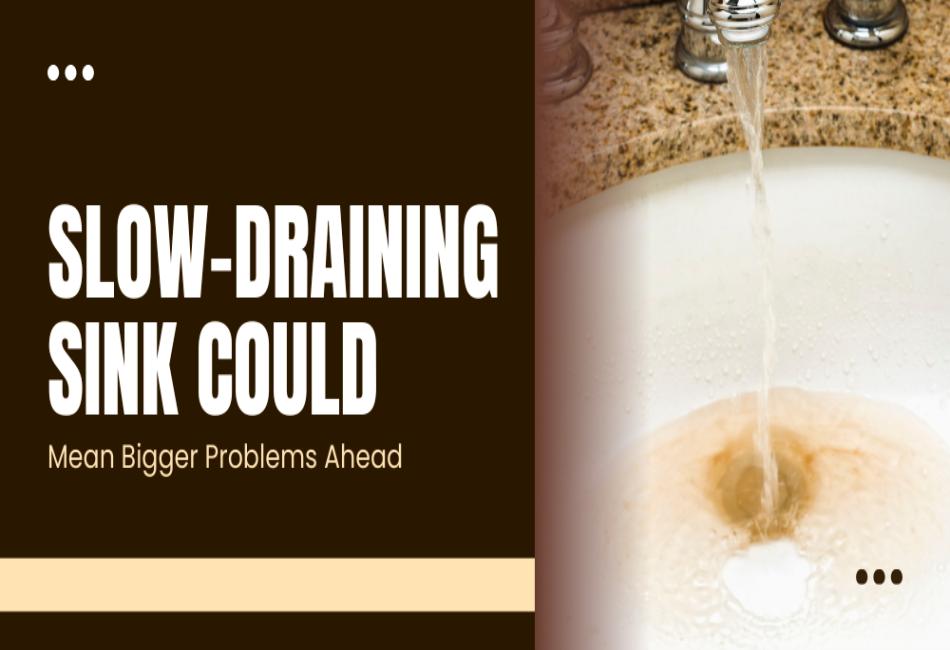A slow-draining sink may seem like a minor household inconvenience, but it can easily escalate into a much larger plumbing headache if left unchecked. Most homeowners ignore it, hoping it will go away on its own or resolve with a quick DIY fix. However, persistent slow drainage often points to deeper issues within your plumbing system. It’s not just about inconvenience—it’s about what’s brewing behind the scenes that you can’t see. To help you understand why prompt attention matters, read on!
What Causes a Slow-Draining Sink
When your sink drains sluggishly, something is gradually restricting water flow. Small habits and aging plumbing systems contribute more than most realize. Instead of brushing it off as a minor clog, it’s helpful to understand where the problem starts. These are the common causes:
- Grease buildup: Pouring hot grease down the kitchen sink may seem harmless, but it solidifies as it cools. That grease coats your pipes, narrowing their diameter over time.
- Soap residue: Many dish soaps, especially thicker formulas, leave behind a waxy film.
- Food scraps: Food waste can stick to pipe walls even with a garbage disposal. Items like coffee grounds, eggshells, and fibrous veggies can cause significant blockage.
Structural issues within plumbing can worsen drainage problems if not addressed promptly. These are the ways misaligned or old pipes affect sink performance:
- Improper slopes: Pipes that aren’t angled correctly cause water to pool instead of flowing freely.
- Worn materials: Aging pipes may corrode, crack, or collapse, limiting drainage capacity.
- Increased blockage risk: Damaged or misaligned pipes trap debris more easily, compounding slow drainage.
Signs You’re Dealing With More Than a Simple Clog
A one-time clog may not cause alarm, but if your sink continues to drain slowly despite repeated attempts to clear it, you might face a more complex problem. Several signs indicate that the issue goes deeper than the P-trap under the sink. It includes:
- Recurring slow-draining sink issues: If your sink continues to drain slowly, no matter how many times you use baking soda, vinegar, or a plunger, the blockage could be further down the system.
- Gurgling sounds: Strange noises from your drain often suggest trapped air caused by partial blockages or ventilation problems deeper in the plumbing system.
- Foul odors: Persistent odors are often due to decaying organic matter in drains or sewer gases leaking into the home.
- Water backing up: If water backs up into other areas—like another sink, a dishwasher, or a bathtub—there’s likely a serious clog in your main line.
Why Ignoring Clogs Can Lead to Costly Damage
Letting a slow-draining sink slide might initially seem harmless, but you could set yourself up for more expensive repairs later. Plumbers build plumbing systems for fast and efficient water flow. When something interrupts that process, it can cause lasting damage. These are the main risks caused by unresolved blockages:
- Pipe pressure buildup: When water flow is restricted, pressure increases inside the pipes.
- Leaks behind walls or cabinets: A slow-draining sink may mask leaks caused by pressure buildup or corroded joints.
- Mold and mildew growth: Moisture under the sink or inside walls creates an ideal environment for mold and mildew.
- Cabinet and structural damage: Constant exposure to leaking water rots wood, swells particleboard cabinets, and weakens drywall or flooring around the sink.
- Higher repair costs later: Minor unresolved plumbing issues often result in much more expensive repairs, including complete pipe replacement or water damage remediation.
How a Professional Plumber Solves the Problem
DIY fixes may tempt you, but they only address the surface problem. A professional plumber can dive deeper—literally and figuratively. If your sink remains slow to drain, here’s how a professional typically addresses the issue:
- Video camera inspections: Plumbers use tiny, high-resolution cameras to inspect the inside of your pipes.
- Advanced drain cleaning tools: Professionals use hydro-jetting, augers, or motorized drain snakes that clear blockages completely rather than pushing them further down.
- Assessment of pipe condition: If your plumbing system is old or damaged, a plumber can evaluate whether pipe replacement or realignment is needed.
- Leak detection equipment: They can find hidden leaks before they become noticeable.
- Efficiency improvements: Beyond unclogging, plumbers ensure your kitchen plumbing system functions better, preventing future issues and keeping your home safe.
Act Before the Problem Grows
In conclusion, don’t dismiss a slow-draining sink in Brisbane, CA, as a temporary inconvenience. It’s often a red flag that something deeper is wrong with your plumbing system. Ignoring it can lead to leaks, mold growth, cabinet damage, or even complete pipe replacement. The good news is that early action makes a huge difference. If you notice persistent slow drainage, odd sounds, or foul odors, it’s time to take it seriously. Schedule a plumbing evaluation today to keep your kitchen running smoothly and prevent unnecessary repair costs.




